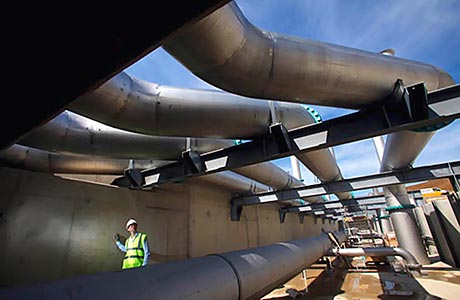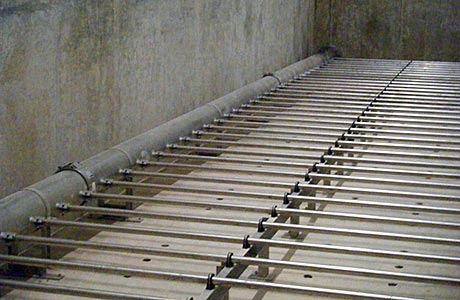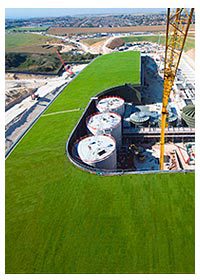
SOUTHERN Water has completed a £300 million environmental improvement scheme that includes building a new wastewater treatment works for the catchment area of Brighton & Hove and the surrounding districts.
In order to meet ambitious environmental targets for the site, designers had to implement very space efficient processes, one of which was constructed and installed by stainless steel process pipework specialist BCI Process.
Prior to the new scheme the Brighton and Hove catchment area had some of the oldest wastewater treatment infrastructure in the country. The Portobello site for instance had been in use since the 1870s. The works at Portobello have been upgraded and modernised several times in the intervening years before plans for the new, highly efficient treatment works were drawn up for the Peacehaven site where work started in mid-2009.
With the chosen location of a dry valley in the chalk downs just north of the coastal town of Peacehaven, both compactness and low profile were important selection criteria. Allowance also had to be made in the footprint for treatment expansion to meet possible future tightening of discharge consent conditions. In terms of the secondary treatment, it was important to select the most suitable compact treatment process that could fit in the constrained site and deliver the desired outputs.
Sites which have the luxury of space typically employ percolating filters with rotating spray bars, but these would have been impossible to implement in this situation. Designers required a high rate biological treatment process with a minimal footprint. The chosen system consists of 10 biological aerated flooded filter (BAFF) cells, using media which is held in suspension by air forced through the cells by five blowers delivering air through a common manifold.

All BAFF plants work on the principle of partially treated, aerated sewage flowing through a submerged medium upon which the biomass growth attaches to form the stable concentrations needed to treat sewage at loading rates of between four and ten times that of conventional treatment systems. BAFFs provide high rate, compact and robust sewage treatment plants that are capable of producing high quality sewage effluents.
Having passed through primary treatment, the wastewater is distributed equally between the 10 BAFF cells. The wastewater flows upwards together with air supplied by compressors though several metres of floating polystyrene beads. These beads are retained by a concrete slab perforated with nozzles that allow the water to pass but hold back the beads. Biological treatment is provided by the aerobic micro-organisms that grow on the beads in the presence of nutrients and oxygen, provided by the wastewater and air.

BCI Process won the contract to supply and install the aeration pipework in each of the 10 BAFF cells. All the pipework services were constructed from light gauge metric stainless steel to ensure the new installation would provide long lasting service. With the bulk of the fabrication completed at their premises, BCI was able to ensure the quality of the fabrications was consistent and assured. In-house fabrication also allowed a consistent flow of materials to their on-site engineers, allowing them to complete the installation on time and within budget.







